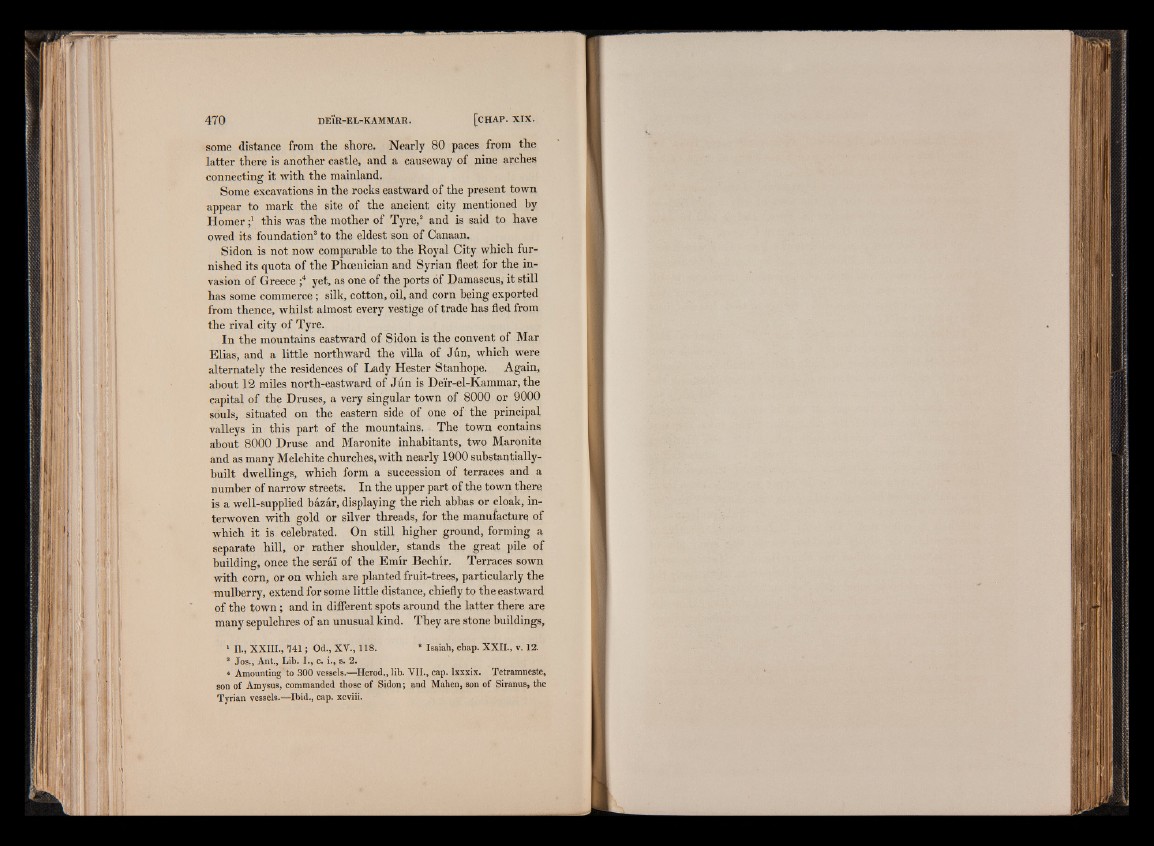
some distance from the shore. Nearly 80 paces from the
latter there is another castle, and a causeway of nine arches
connecting it with the mainland.
Some excavations in the rocks eastward of the present town
appear to mark the site of the ancient city mentioned by
Home r th i s was the mother of Tyre,3 and is said to have
owed its foundation8 to the eldest son of Canaan.
Sidon is not now comparable to the Royal City which furnished
its quota of the Phoenician and Syrian fleet for the invasion
of Greece ;4 yet, as one of the ports of Damascus, it still
has some commerce; silk, cotton, oil, and corn being exported
from thence, whilst almost every vestige of trade has fled from
the rival city of Tyre.
In the mountains eastward of Sidon is the convent of Mar
Elias, and a little northward the villa of Jun, which were
alternately the residences of Lady Hester Stanhope. Again,
about 12 miles north-eastward of Jun is Deir-el-Kammar, the
capital of the Druses, a very singular town of 8000 or 9000
souls, situated on the eastern side of one of the principal
valleys in this part of the mountains, The town contains
about 8000 Druse and Maronite inhabitants, two Maronite
and as many Melchite churches, with nearly 1900 substantially-
built dwellings, which form a succession of terraces and a
number of narrow streets. In the upper part of the town there
is a well-supplied bazar, displaying the rich abbas or cloak, interwoven
with gold or silver threads, for the manufacture of
which it is celebrated. On still higher ground, forming a
separate hill, or rather shoulder, stands the great pile of
building, once the serai of the Emir Bechir. Terraces sown
with corn, or on which are planted fruit-trees, particularly the
mulberry, extend for some little distance, chiefly to the eastward
of the town; and in different spots around the latter there are
many sepulchres of an unusual kind. They are stone buildings,
1 II., XXIII., 741; Od., XV., 118. 8 Isaiah, chap. XXII., v. 12.
3 Jos,, Ant., Lib. I., c. i., s. 2.
* Amounting to 300 vessels.—Herod., lib. VII., cap. lxxxix. Tetramneste,
son of Amysus, commanded those of Sidon; and Mahen, son of Siranus, the
Tyrian vessels.—Ibid., cap. xcviii.